These are the photographs of the great Lewis Hine, who resorted to a number of subterfuges to be able to get cameras into the factories.
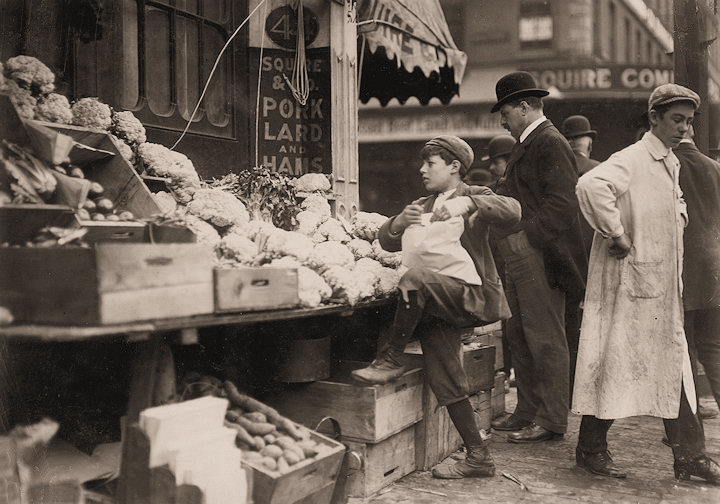
From the National Archives: [nat]
Lewis Hine, a New York City schoolteacher and photographer, believed that a picture could tell a powerful story. He felt so strongly about the abuse of children as workers that he quit his teaching job and became an investigative photographer for the National Child Labor Committee. Hine traveled around the country photographing the working conditions of children in all types of industries. He photographed children in coal mines, in meatpacking houses, in textile mills, and in canneries. He took pictures of children working in the streets as shoe shiners, newsboys, and hawkers. In many instances he tricked his way into factories to take the pictures that factory managers did not want the public to see. He was careful to document every photograph with precise facts and figures. To obtain captions for his pictures, he interviewed the children on some pretext and then scribbled his notes with his hand hidden inside his pocket. Because he used subterfuge to take his photographs, he believed that he had to be “double-sure that my photo data was 100% pure – no retouching or fakery of any kind.” Hine defined a good photograph as “a reproduction of impressions made upon the photographer which he desires to repeat to others.” Because he realized his photographs were subjective, he described his work as “photo-interpretation.”
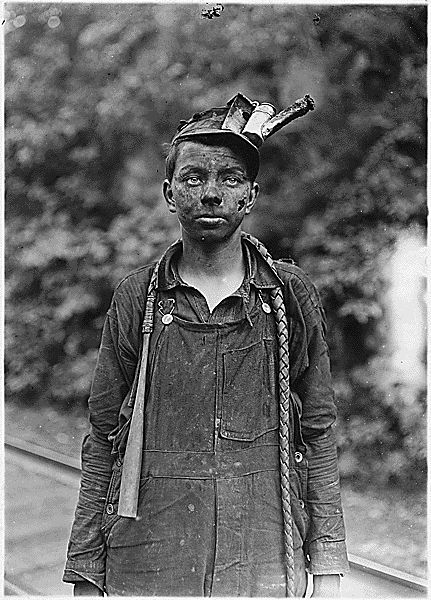
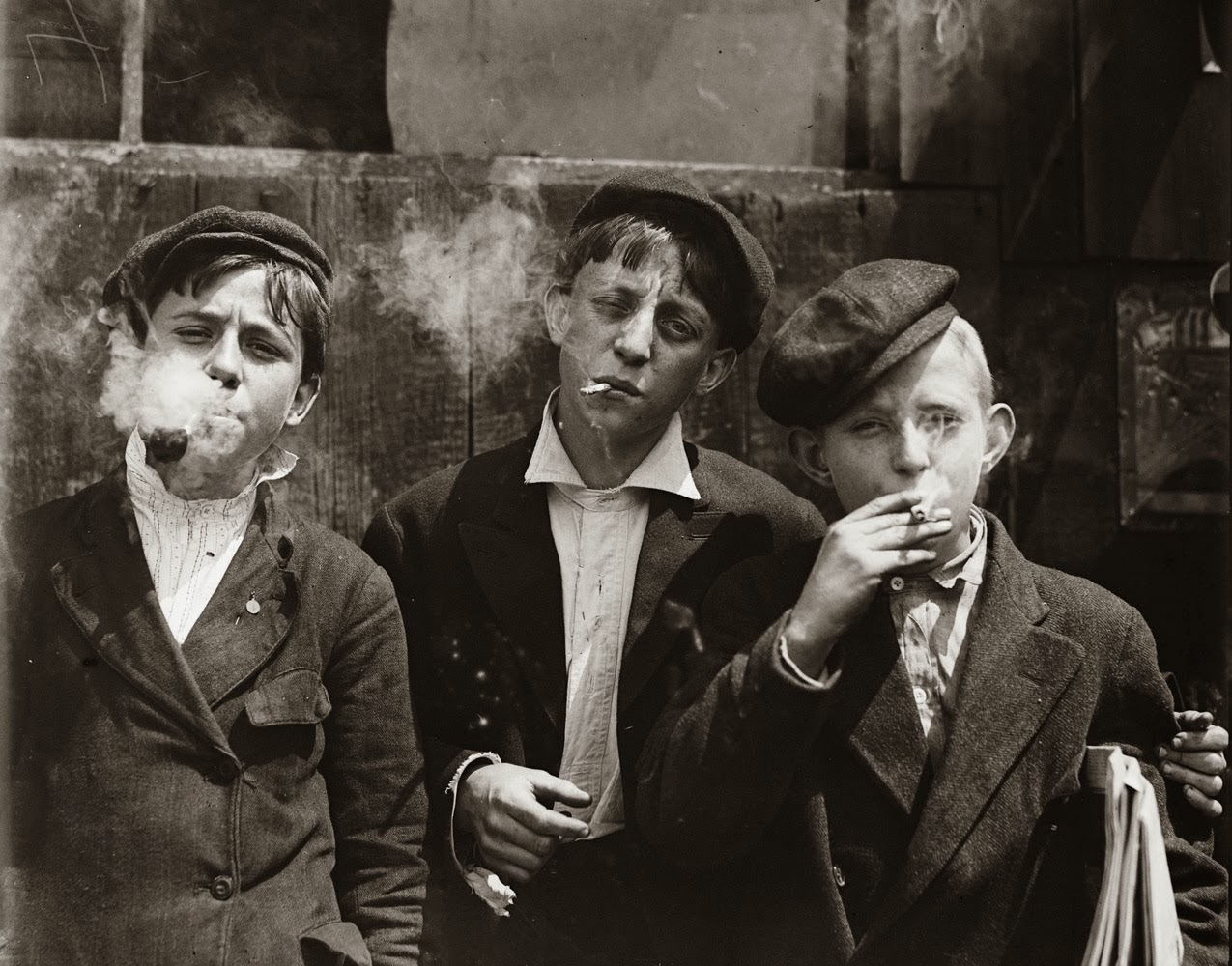
These children were worked to death so that capitalists could enjoy the fruits of their labor as profits.
What capitalists want us to forget, on this labor day, is that their ability to be profitable depends on their ability to pay labor less than it is worth. Historically, one of the ways to find a labor pool that can’t complain is to use children. Today, in much of the US, it’s prison labor.
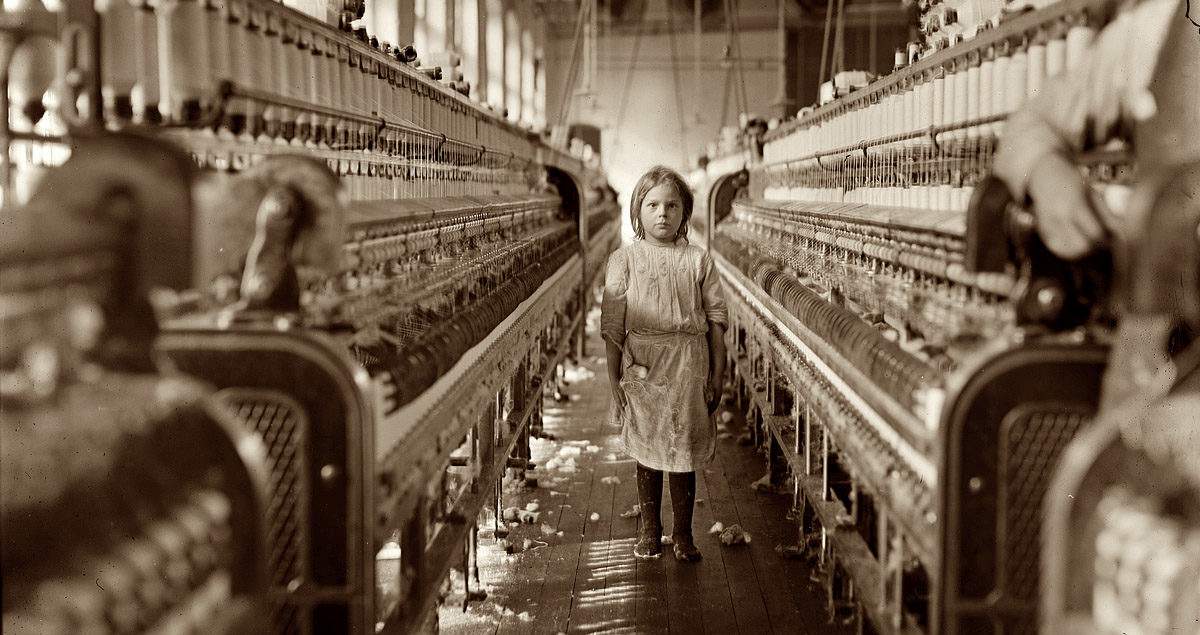
They say that they cannot run their business if they pay the laborers more. That’s odd, because, if they are profitable at all it is because of the workers. It seems like it ought to be obvious but you don’t have a restaurant without staff, so your profitability depends on your staff – not how thoroughly you can put the screws to them.
At this time, in the US, there are many people who subsist on a WAL-MART or Amazon job, and are also depending on government programs like food stamps in order to make ends meet. You don’t have to be a genius economist to realize that if you’re helping feed people because their job doesn’t, then you’re subsidizing the company so it doesn’t need to pay its laborers a living wage. Capital’s profits are inefficiency baked into the system; perhaps they could pay their workers a living wage if they didn’t pay their executives so much.

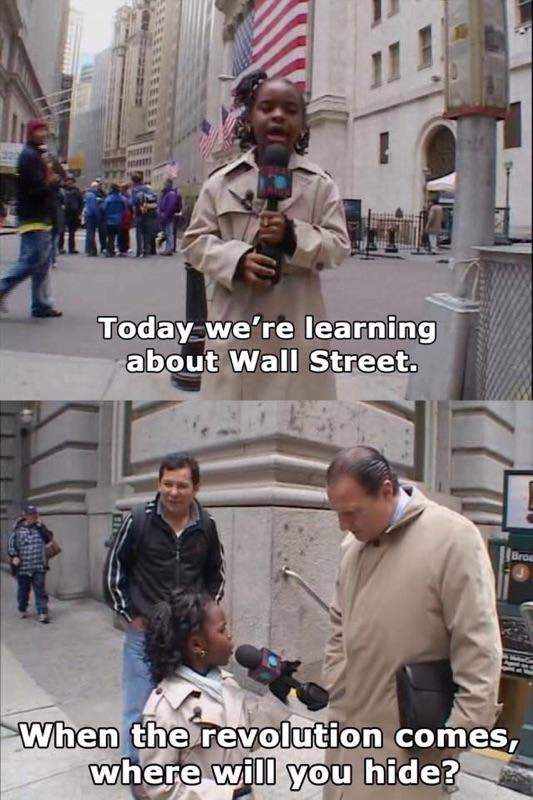

Slavery never ended in the US…
Is that a whip around the coal-boys neck?
avalus@#1:
Slavery never ended in the US…
The history of labor is the history of slavery and vice-versa. It’s not possible to understand the US without realizing that slave labor was labor. Slavery was created in order to guarantee a supply of free workers. The US has constantly been shifting around to figure out how to supply that labor, so that those who do no labor can enjoy the results of it.
Is that a whip around the coal-boys neck?
Yes. A lot of near-surface mining was done with donkeys pulling carts. Kids were used for that because being small was good, and it didn’t take much strength. It was horribly dangerous, of course.
Ah, tanks for the clarification. My first thought was: Was he an “overseer” over other workers and used it on those under him (meaning other kids)?
The subsidies businesses get from the Government, in the form of welfare for the workers they pay such low wages to, is one of the great hypocracies of Conservatism that far too few people see through.
Revisionists pretend that slave owners in the South treated their slaves well, just as todays’ owners of thoroughbred horses treat them well. That was not so, especially as slavery in the US was based upon race, but neither was it so in antiquity, when slaves were usually the same race as their masters. However, slave owners had to keep them alive, fed, healthy, housed, and clothed. Something that Wal-Mart does not need to do, and, indeed, does not do. Wal-Mart gets a better deal than slave owners.
Just seeing that little girl in between those machines makes me cringe just for the sake of worrying about small(ish) children near machinery like that. I’m guessing those are mechanical looms or in other words vicious, fast-moving hulks capable of maiming whoever gets in their way. I’d be uncomfortable standing there myself.
And then there’s the child labour aspect on top of it all.
Whenever people are laid off in droves to save the company money I have to remind myself that you can’t fire even one executive with the same salary as their sum total to get the same result. For reasons only executives know, firing one incompetent executive is a lot more expensive than firing ten thousand productive employees. It couldn’t possibly the obvious: corruption, greed and stupidity. That’s just typical layperson’s thinking. Must be.
Is there aught we have in common with the greedy parasite…
komarov@#6:
Whenever people are laid off in droves to save the company money I have to remind myself that you can’t fire even one executive with the same salary as their sum total to get the same result.
Oh, you noticed that, too?
Shiv@#7:
Who would lash us into serfdom and would crush us with his might
Is there anything left to us but to organize and fight? For…
The union makes us strong
[iww]
Bill Spight @#5
Well, not necessarily. Slave owners seemed perfectly happy having a high death rate among their slaves. And it’s not like the owners of thoroughbred horses (dogs, cats, other animals) always treat them well. People who perceive their animals as pets generally treat them well. People who perceive their animals as a source of income generally treat them only good enough to ensure that the animal stays alive for as long as it remains profitable. When breeding animals for profit, the only way how you can increase your income is by reducing your animals’ life quality. Consider dog breeding for example. A female dog can have about six or so litters of puppies. After that she becomes too old for breeding. But she’s still too young to die of natural causes. If you care for this dog and see her as a pet, you won’t be able to simply get rid of her the moment she gets too old for giving birth to puppies. If you see this dog as a source of income and you want to increase your revenue, then you have to kill the dog the moment when feeding her stops being profitable. In order to maximize profit, businesspeople dehumanize living creatures (whether human or animal) and treat them as disposable.
The NYT has this article, Companies Say Trump Is Hurting Business by Limiting Legal Immigration.
I found myself wondering why there would be an employment slot for a specifically foreign pathologist, as per the article. One thought that occurred to me is that the salary is deliberately (far?) lower than average, and an American-educated equivalent would not find such a salary acceptable because they would have enormous student debt. Which lead to the further thought that countries with less expensive education, healthcare, and cost of living in general are subsidizing cheap labor for the US.
I really don’t know if this is a completely correct analysis. Am I missing anything obvious?
Different hierarchies of examination — personal vs societal.
(i.e. when one society benefits from the labour of another, that labour in turn benefits from the employment by that society — leaving aside degenerate cases, such as slavery)
(Or: poor countries whose labour seeks better fields benefit from return monies — social bonds and that stuff)
Remittances are not nearly enough to compensate for the loss of the most educated and the most hardworking people. Where emigration is so large that remittances are a significant part of the economy, the society that’s left behind tends to be hollowed out, less productive and, generally speaking, more corrupt at all levels.
I think Owlmirror’s observation is correct, on balance, although John Morales does have a point, in that remittances contribute to returning a small part of that subsidy.